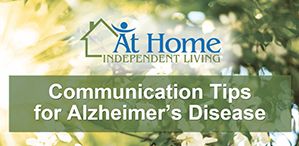July 9, 2024 by Dean Bellefeuille
Mom has a green thumb that’s second to none, and she wants to redesign the family garden for the first time in years. She may not move as fast as she once did, but that hasn’t slowed down her love for gardening. This is a perfect opportunity for you to step in—not to take over, but to facilitate her vision, perhaps by providing tools that make gardening easier for her to handle. It’s so important to empower your parents to pursue their interests and maintain their independence with a bit of thoughtful support as needed. Here’s how you can work together with your parents to support senior independence and help them continue to live life their way:
- Daily Living Activities: If daily responsibilities that you once took for granted become more difficult for your parents, collaborate with them to establish more creative, accommodating solutions that prioritize their independence. This might include introducing handy tech tools that simplify cooking and cleaning, or adapting their home to make it more ergonomic. These changes help maintain their self-sufficiency and make everyday life a little easier. Also, consider regular assessments of their living space to further enhance convenience and accessibility, so they can continue to navigate their home safely and comfortably throughout aging.
- Health Management: Be an active participant in your parents’ health management. Attend doctors’ appointments with them, not just for support, but to stay fully informed. Together, you can track treatments and medications, ensuring they feel comfortable and confident with their healthcare decisions. Engaging actively in these discussions also helps you advocate for their needs and assures that their treatment plans are fully understood and properly managed.
- Emotional Support: Nourish your relationship with your parents by joining in activities that support your connection and spark joy between you all. Share stories, engage in hobbies together, or explore new adventures. This kind of support is vital for their emotional health and strengthens the bonds within your family. Frequent communication can help alleviate feelings of loneliness or isolation they might experience, ensuring they always feel loved and connected.
- Financial Oversight: Support your parents in managing their finances by talking over their goals and preferences, and help them learn how to use tools that make budgeting and bill payments simpler. This helps protect their assets while empowering them with the knowledge and resources they need to maintain control over their financial health. Regular reviews of their financial situation can also provide peace of mind for both you and your parents, confirming that their finances are in order and well-managed.
- Home Safety: Enhance their living environment with modifications that promote safety without sacrificing style or comfort. Simple adjustments like improved lighting and accessible storage can greatly increase their confidence and independence at home, making it a safer and more comfortable place for them to live.
At the end of the day, it’s about supporting senior independence and helping aging parents continue to lead vibrant, autonomous lives. It’s about helping them make the most of this enriching phase of life, with just the right amount of assistance that is never overbearing.
We’re here to support you and your aging parents as well with highly personalized in-home care services in Syracuse, Camillus, Clay, and the surrounding areas. Contact us online or at (315) 579-HOME (4663) for a free consultation to learn more.

